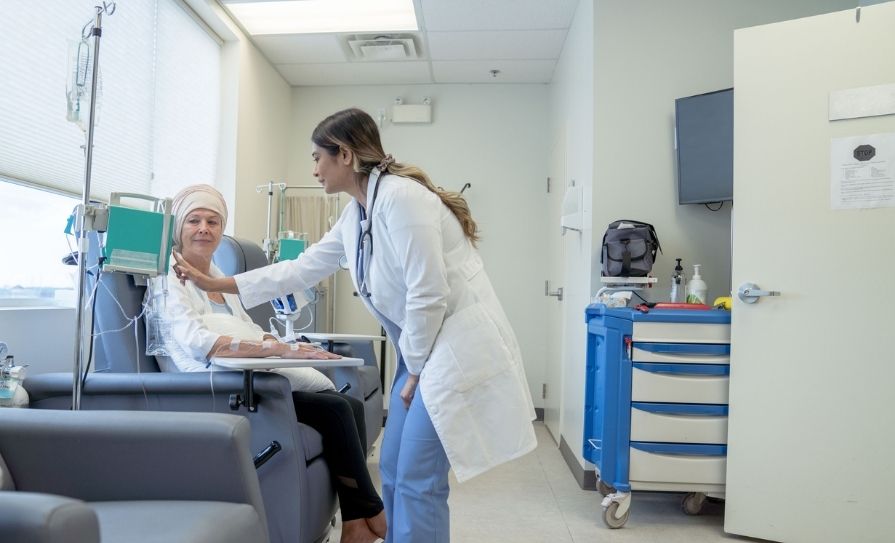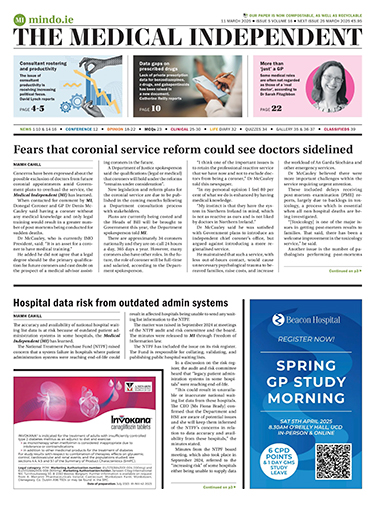Approximately 300 doctors have signed a letter to the Medical Council expressing their alarm at changes to the ‘end-of-life care’ and ‘conscientious objection’ sections as presented in the new guide on professional conduct and ethics. The Medical Independent understands the concerns were first expressed to the Council late last year and the most recent letter was issued in mid-January.
The context to these concerns is the potential legalisation of assisted death. A special Oireachtas committee, which convened in early 2023, is examining the area and is due to report in March.
The doctors’ concerns primarily relate to two of the changes to the guide. The first is the deletion of the line “you must not take part in the deliberate killing of a patient” from the section on end-of-life care.
The second relates to the updated section on conscientious objection, particularly the statement that doctors “must” make such arrangements as may be necessary to enable a patient to obtain the required (lawful) treatment. The previous guide stated that if the patient could not arrange their own transfer of care, the doctor “should make these arrangements on their behalf”.
Assisted death and euthanasia are illegal in Ireland. The guide states that doctors have a duty to comply with laws and regulations pertaining to their practice.
The ninth edition of the guide, which replaced the version produced in 2016 (and amended in 2019), was launched on 1 November 2023. It took effect on 1 January. The review of the guide was subject to a public consultation process in 2021. However, the public consultation exercise sought feedback on the eighth edition and did not put forward proposed changes.
This newspaper understands there is also dismay among the concerned doctors that the Council did not highlight the changes to the end-of-life care and conscientious objection sections in its communications on the new guide.
A Medical Council spokesperson said the guide outlines “general principles” with which doctors are expected to adhere and specific guidance on areas of practice. It is not a legal code.
As well as being informed by a consultation process, the ethics committee considered existing and newly enacted legislation and how it applies to the protection of the public from medical regulatory and legal perspectives.
The guide states doctors must comply with, and operate within, the law. “As per legislation, it is illegal for all individuals, including doctors, to take part in the deliberate killing of a person, or to assist a person to end their own life. The removal of the sentence ‘you must not take part in the deliberate killing of a patient’ does not diminish the law.”
The Council “welcomes feedback” and has “spoken to a small number of doctors already”. It will continue to consider the concerns raised.













Removing the section around ‘deliberately killing’ is the single biggest change in the guidelines since I started studying medicine in 1978.
Despite two opportunities to address it with GP colleagues on the monthly ICGP webinar, and a number of questions raised during the discussion, the speakers studiously avoided it.
As frontline physicians, we are entitled to a discussion at the very least.